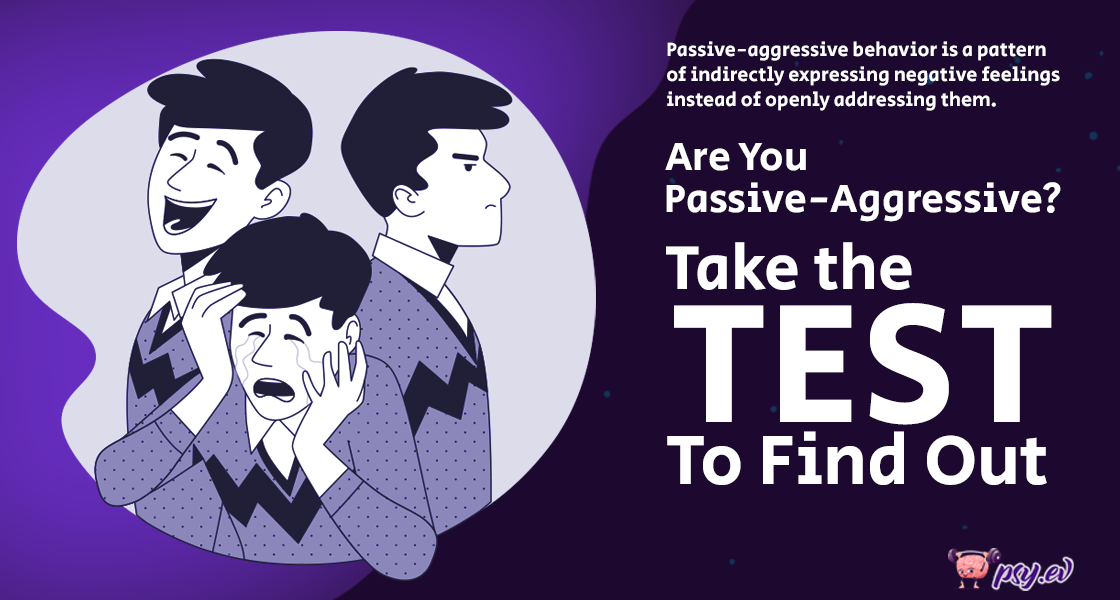Do you find yourself constantly bottling up your feelings? Are you afraid to stand up for yourself? If so, you might be displaying passive-aggressive tendencies. This type of behavior can be harmful to both your personal and professional life.
In this quiz, we will ask a series of questions that will help you determine whether or not you have passive-aggressive tendencies. Don't worry, if you do have them, there is plenty of help available! So, take this quiz now and find out if you're passive-aggressive. Let's get started!
Instructions: Please, read the statements listed below. Answer to each item that you believe accurately describes your condition
If someone ask me to do a favor that I’m reluctant to do, I say “Yes” when I really mean “No”
When I disagree with something I openly voice my opinion about it
Other people treat me unfairly
People complain about my failure to meet deadlines even if I provide them with good reasons for the delays
If I’m required to do the work that I’m unwilling to do, I deliberately do it poorly in order to not be asked again
I try not to make any clear promises to other people in order to avoid unnecessary responsibilities
People consider me an absentminded person
People are too demanding or needy
If I have an argument with a close one, I use “the silence treatment” where I give very little if any response
Even if I definitely know that I’m in the wrong, I avoid admitting my fault to other people
I feel a need to resist authority over me
I fear that I’m inadequate
The Passive-Aggressive Test is based on the diagnostic criteria of Passive-aggressive Personality Disorder (PAPD). The online self-test covers the main signs of the behavioral disturbance. Being passive aggressive could be not merely an adverse reaction but a telltale symptom of the specific personality disorder, listed as a diagnosis in the standard classification of mental disorders. People with passive-aggressive personality don’t usually involve themselves in open fights, but prefer various ways to indirectly express their hostility. Such a constant covert aggression poisons and disrupt their relationships.
The most significant behavioral patents of passive-aggressive personality include acting sullen, claiming forgetfulness to avoid responsibility, being inefficient and procrastinating on purpose, and resisting other people's suggestions. Blaming others, frequent complaining, constant feeling resentment, having unexpressed anger or hostility, and fear of authority are also common symptoms.
If you suspect that you frequently behave in a passive-aggressive way, take the test for a preliminary assessment. The test result will indicate whether you need further examination and counseling. Professional counseling could substantially help to improve your relationship. If you already are undergoing therapy, you can use the test regularly to track your progress in the treatment phase.


